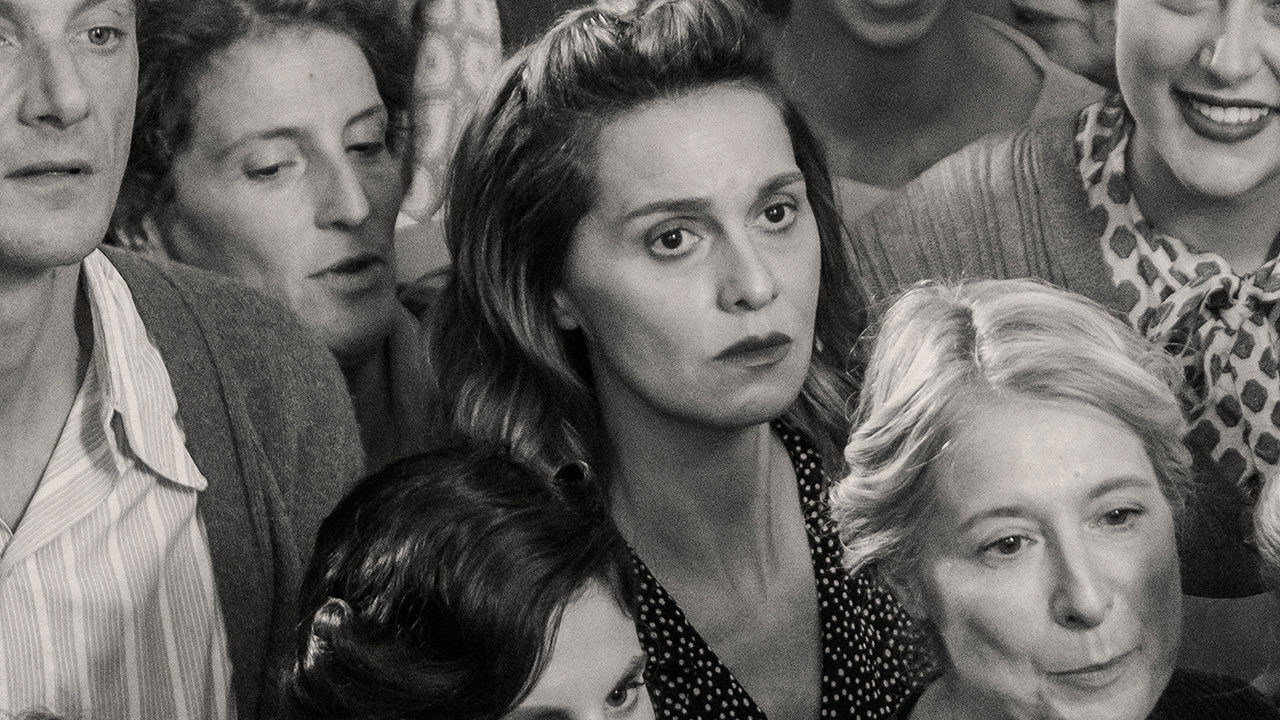There's still tomorrow is the first feature film by Paola Cortellesi, perhaps the most talented and multifaceted Italian artist, who after having distinguished herself as an actress, screenwriter and author, this time debuts as a director with an exceptional film that talks about the condition of women in Italy emerging from the Second War World.
Plot of the film “There's Still Tomorrow” (no spoilers)
The film is set in Rome in 1946. The city is destroyed due to the poverty left by the Second World War and Delia, the protagonist, is a woman who lives a difficult life, being the wife of Ivano, a violent man, and the mother of three children, including the teenager Marcella.
In addition to her domestic duties, she works as a nurse for her gruff father-in-law Ottorino and gets by with odd jobs in the city's shops.
Delia's life is turned upside down when Marcella gets engaged to Giulio, the son of a wealthy family who runs a successful bar. Ivano sees this relationship as an economic opportunity and hopes for a financial benefit from the upcoming wedding. However, Delia realizes that her daughter risks ending up in a marriage similar to hers, characterized by harassment and humiliation.
To avoid her daughter's future, Delia is willing to do anything and teams up with William, an African-American soldier friend of hers, to achieve her goals. Despite the daily difficulties, Delia will also commit to exercising her right to vote when on June 2nd, for the first time, the Italian people will be led to vote between Monarchy and Republic.
The “There is still tomorrow” initiative
There's still tomorrow it is a film that denounces the feminine condition of women in the post-war period, the difficult relationships between parents and children, shedding light on those toxic dynamics that permeated that type of society far from today.
The “There's Still Tomorrow” initiative was promoted by Vision Distribution, in collaboration with Unisona and Keaton and includes the screening of the film at the cinema followed by a live broadcast of about an hour with the director Paola Cortellesi and the actress Emanuela Fanelli. From cinemas connected throughout Italy, students will watch the live streaming and will be able to interact with the speakers through the app dedicated to the event.
Capodarco Training present!
Given the historical and socio-cultural interest of the film, Capodarco Formazione will participate in the screening with its students, confident that the vision will be able to stimulate interesting debate and discussion, enriching young people and allowing them to compare the current situation they experience in everyday life with those that were dynamics in the past, for useful food for thought on the evolution of society from 1946 to today.



